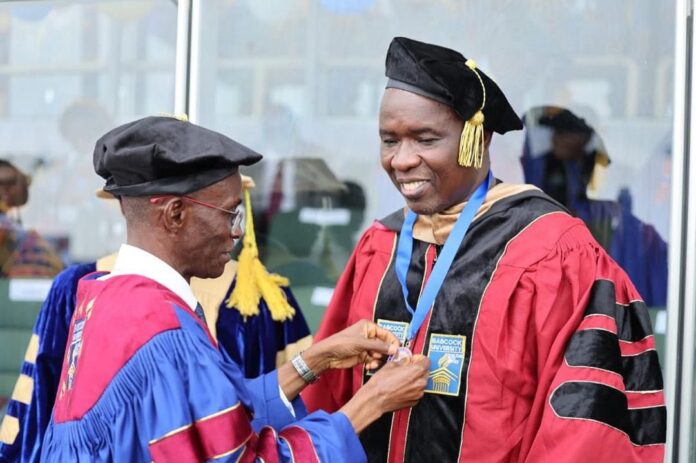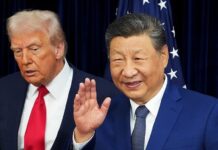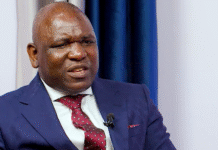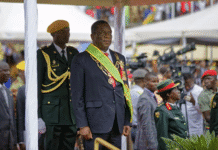As I watched proceedings at the ongoing ZANU-PF National People’s Conference in Mutare, one detail stood out far more than the political rhetoric and choreographed loyalty displays — the name plaques adorning the high table.
By Tendai Ruben Mbofana,
Nearly every senior figure was introduced as “Dr. So-and-So.”
The obsession with titles has become a defining feature of Zimbabwe’s political and bureaucratic elite.
From the presidium and cabinet ministers to senior civil servants, it seems everyone must now be addressed as “Doctor.”
This phenomenon has reached such comical proportions that there have been allegations of some officials obtaining their PhDs through dubious means — fraudulent dissertations, plagiarized theses, and academic institutions willing to trade integrity for influence.
Yet, the question that demands honest reflection is: why this fixation with doctorates?
What drives this relentless pursuit of academic titles among people who show little evidence of applying scholarly wisdom to the governance of the nation?
The irony is impossible to ignore.
In much of the Western world, political leaders — even those guiding powerful, highly developed economies — seldom boast of PhDs.
Only one U.S. president in history, Woodrow Wilson, ever held a doctorate.
In countries like the United Kingdom, Canada, Germany, and the Nordic states, national leaders are rarely, if ever, obsessed with being called “Doctor.”
Their focus is on performance, innovation, accountability, and effective governance — not titles.
Contrast that with our own reality in Zimbabwe and much of Africa.
Here, one cannot attend a government event or state function without being bombarded by an avalanche of “Doctors.”
The ruling elite’s craving for academic status has almost become a substitute for legitimacy.
The more they fail to deliver tangible results in governance, the more they seek validation through inflated titles.
It is as if the doctorate is not merely an academic achievement but a shield — a tool to command respect, to appear enlightened, and to mask the glaring incompetence that defines their leadership.
The result is a grotesque paradox.
Despite this supposed abundance of intellectuals in government, Zimbabwe is mired in deep socio-economic decay.
Our hospitals have collapsed, our education system is underfunded, our infrastructure is crumbling, and millions of our citizens have fled the country in search of survival.
In spite of our vast mineral wealth and agricultural potential, we remain one of the poorest nations on earth.
If governance were truly a function of academic qualifications, Zimbabwe should be among the best-run countries in the world.
Yet the evidence tells a far different story.
The uncomfortable truth is that the PhD craze among our leaders has little to do with intellectual curiosity or the pursuit of knowledge.
Rather, it appears to be a form of overcompensation — a psychological cover for insecurity and incapacity.
Those who lack moral authority and competence in practical governance often seek alternative ways to project superiority.
It is the classic case of the coward who tries to appear the bravest in the room, or the liar who swears the loudest to be honest.
A PhD, in the true academic sense, demands rigorous research, critical thinking, and the generation of new knowledge.
But in the political context of Zimbabwe, the title has been stripped of that intellectual dignity.
It has become a prop, a vanity accessory, an ego massage.
When a leader insists on being addressed as “Doctor,” even in purely political or administrative settings, it suggests a deeper need for validation — a desperation to be seen as intelligent, capable, and legitimate.
Yet governance is not a thesis defense; it is the practical art of managing national resources, upholding justice, ensuring accountability, and improving citizens’ lives.
Western leaders seem to understand this distinction intuitively.
They know that good governance requires not just education, but emotional intelligence, humility, ethical conviction, and an ability to listen and adapt.
That is why leaders like Winston Churchill, Margaret Thatcher, Barack Obama, or Emmanuel Macron — none of whom had doctorates — have left profound marks on their nations through vision, pragmatism, and leadership skill rather than academic decoration.
Meanwhile, our “Doctors” preside over chaos.
They misuse national resources, enrich themselves and their cronies, and use intellectual posturing to justify failure.
When cornered, they deliver long-winded speeches peppered with pseudo-academic jargon, hoping to dazzle citizens into silence.
They mistake verbosity for wisdom.
But no amount of eloquence or title-bearing can disguise the hunger, unemployment, and hopelessness that ordinary Zimbabweans endure daily.
This obsession with doctorates is not just a personal vanity issue — it reflects a deeper cultural problem in our politics.
In societies where corruption, nepotism, and impunity dominate, education often becomes performative.
It is used not to transform society but to elevate one’s social status and entrench elitism.
The title “Doctor” becomes a tool of separation — a way to distinguish the ruling class from the struggling masses.
It is a badge of superiority, a mark of privilege, rather than a symbol of enlightenment.
Yet, the irony is that real education — the kind that fosters critical thinking and innovation — should humble, not inflate.
It should make one more empathetic, more accountable, more willing to serve.
But in Zimbabwe, education has been weaponised by the powerful.
Our leaders wield their PhDs as instruments of authority, while their governance remains mired in mediocrity.
We must ask: of what use is a PhD if one cannot ensure clean water for citizens, functional hospitals, reliable electricity, or decent roads?
What intellectual value does a doctorate hold when the holder cannot run a transparent government or protect the nation’s wealth from looting?
The title becomes meaningless when it coexists with corruption, repression, and decay.
The time has come for Zimbabweans to reject this false equivalence between academic titles and leadership ability.
Competence in governance is not determined by the number of degrees one holds, but by integrity, vision, and a commitment to serve.
A truly educated leader is not one who parades a PhD certificate, but one who translates knowledge into progress and justice.
Until our leaders understand this, Zimbabwe will continue to be a land ruled by “Doctors” presiding over dysfunction — a nation drowning in intellectual arrogance and practical failure.
The more they insist on being called “Doctor,” the more it seems they are trying to convince themselves — and us — that they are what they clearly are not: competent leaders.
Tendai Ruben Mbofana is a social justice advocate and writer. Please feel free to WhatsApp or Call: +263715667700 | +263782283975, or email: mbofana.tendairuben73@gmail.com, or visit website: https://mbofanatendairuben.news.blog/











